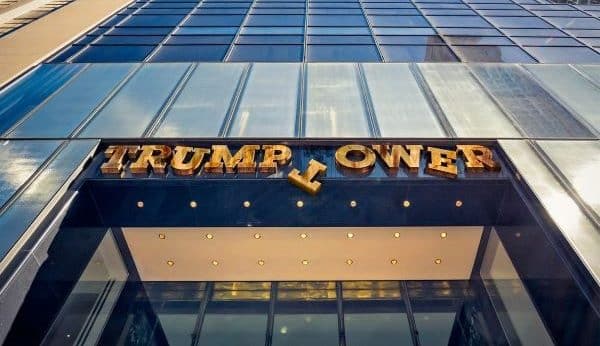
In a historic judgment, former United States President Donald Trump has been ordered to pay nearly $355 million as penalties in a New York civil fraud case.
This landmark decision, issued by Judge Arthur Engoron, also imposes severe restrictions on Trump’s future business operations within the state, highlighting the serious nature of the allegations and the court’s intent to prevent future fraudulent activities.
Key Details of the Ruling
- Monetary Penalties: The ruling mandates Donald Trump to pay approximately $354.9 million. This amount is a significant financial penalty, reflecting the gravity of the fraudulent activities the court found Trump and his companies engaged in.
- Restrictions on Corporate Roles: Donald Trump is barred from serving as an officer or director of any New York corporation or other legal entity for a three-year period. This restriction extends to Trump’s adult sons, Donald Jr. and Eric, who were each ordered to pay $4 million for their personal profits from the fraud and are barred from corporate leadership roles in New York for two years.
- Additional Fines: Beyond the primary judgment, Allen Weisselberg, former chief financial officer of the Trump Organization, was fined $1 million, underscoring the wide-reaching implications of this case on Trump’s inner circle and business operations.
The Basis of the Lawsuit
The lawsuit, spearheaded by Letitia James, New York’s Attorney General, accused Trump, his sons, and his company executives of repeatedly inflating asset values on financial statements. These inflated valuations were purportedly used to deceive lenders and obtain more favorable loan terms. According to the lawsuit, Trump exaggerated his net worth by up to $3.6 billion over several years, a move that significantly misrepresented his financial status to banks and other financial institutions.
The Court’s Observations
Judge Engoron’s 92-page ruling is notable not only for its financial penalties but also for its candid observations on the behavior of the defendants. Describing Trump and his associates as unremorseful, Engoron highlighted their complete lack of contrition, which he saw as bordering on pathological. Despite the severity of the findings, Engoron made it clear that while the actions of Trump and his associates were fraudulent, they did not equate to crimes such as murder or arson, thus categorizing their actions as “venial sins” rather than “mortal sins.”
Looking Ahead: Appeals and Implications
Donald Trump’s attorney has signaled intentions to appeal the decision, a move that could delay the enforcement of the penalties and restrictions. This ruling marks a significant moment in Trump’s post-presidency life, potentially impacting his business operations and future political ambitions. As Trump faces additional criminal trials, this civil fraud case sets a precedent for the legal challenges he may encounter.
This case is a stark reminder of the legal responsibilities and ethical standards expected of business leaders, especially those in the public eye. The substantial financial penalty and the restrictions imposed reflect a concerted effort by the New York judiciary to address and deter fraudulent business practices, reinforcing the importance of transparency and honesty in corporate America.
